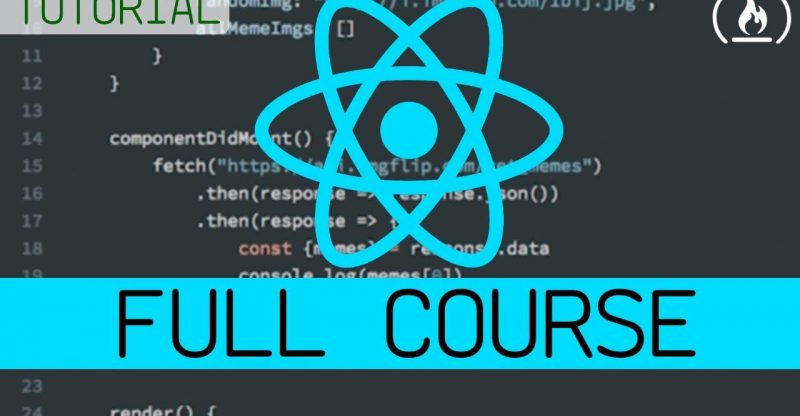
So, trying to “compete” with them, to make your React app stand out, by mimicking that you do grasp the fundamentals of JS, won't get you too far too soon. React developers will seek to leverage the newest, the very best of JavaScript features. Master the Fundamentals of JavaScript Syntax, First Things FirstĪnd I feel like repeating myself: Learn to walk before you run! it's backed up by a striving open-source communityĢ.it's a JavaScript library created and actively maintained by Facebook itself.

Yet, once you're comfortable with it, the convenience of its reusable components will make up for all the time that you will have invested in learning its “wheels within wheels”. And that you might also get a bit discouraged, at first, by the need to write JSX. There's no point in hiding that it does challenge you with a steeper learning curve, compared to other libraries. Mostly because it enables you to “mix and match” and to reuse simple pieces of functionality throughout your React web app. But First: Why Would You Want to Learn React.js in the First Place?

Well, let me give you some clues here! So you should prepare your “battle plan” for “conquering” key JavaScript aspects before you actually dive into your first React tutorial.Ī list, in fact, including 7 concepts that you should focus on along your roadmap to learning JavaScript (before learning React.js):ġ. Is “having a clue” about the JavaScript syntax more than enough for jumping into a JavaScript library like React? Or it is necessary to dive way deeper into JS? To learn all about the DOM, to gain a good grasp of the object-oriented and functional programming concepts and so on? Learn to walk before you run. But how much of it more precisely? How much JavaScript do you need to know before learning React.js? Is a reasonable grasp of the fundamentals enough or should you be able to.

That you can't tackle React before you've learned JavaScvript is an.


 0 kommentar(er)
0 kommentar(er)
